Muslims in Ukraine. Old History - New Challenges
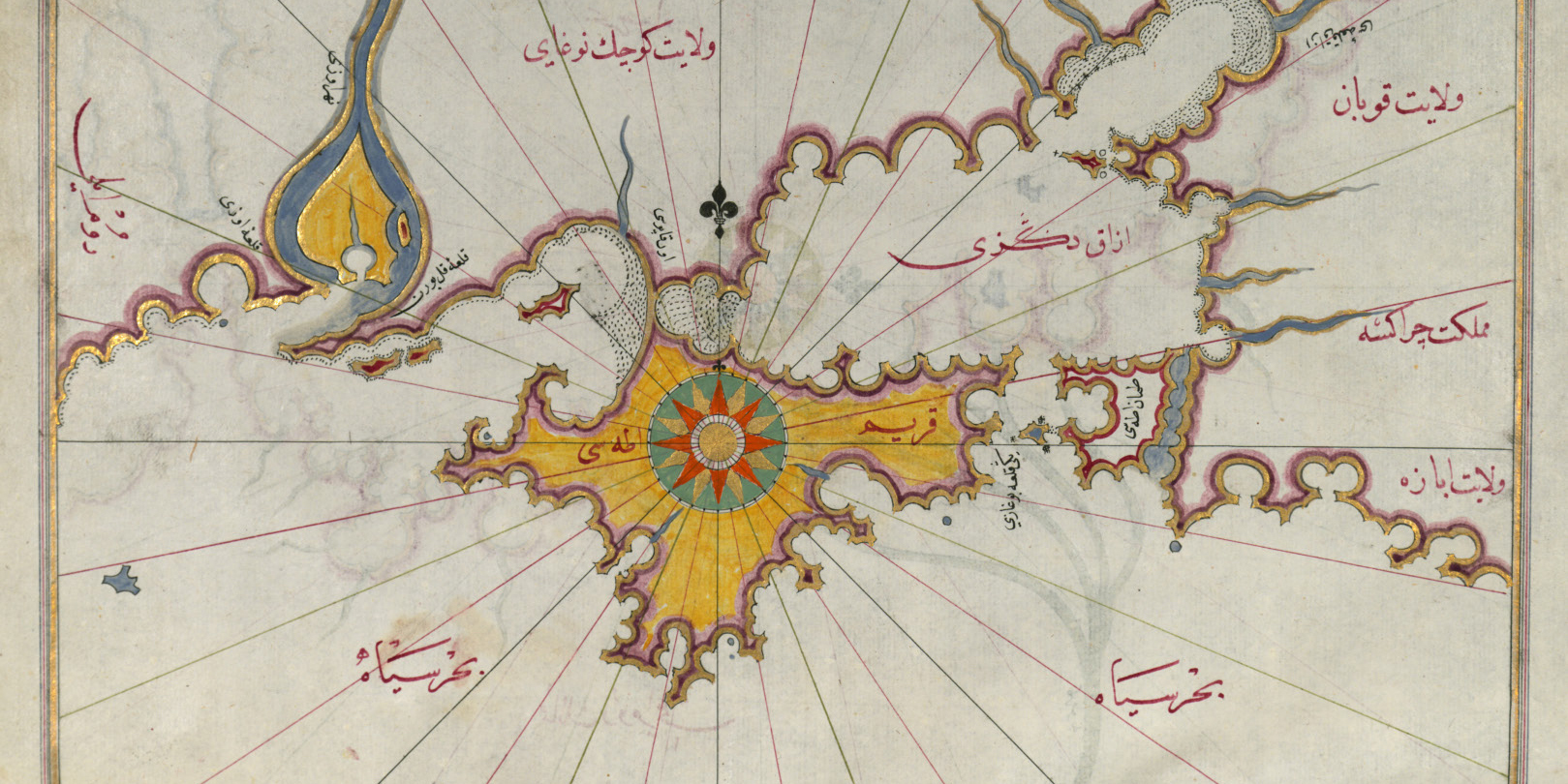
14 September 2023 | University of Basel
Although present-day Ukraine is a mainly Christian country, Islam has deep roots in the area. The Ukrainian lands were once a frontier between the Christian and the Islamic worlds, with Crimea being home to the Crimean Khanate, one of the successor states to the Golden Horde, which ceased to exist only in the late 18th century with the occupation of the peninsula by the Russian Empire. Today, Ukraine’s Muslim communities account for about 1 million people, most of whom are Crimean Tatars, Ukrainians, and people from Muslim countries who came to Ukraine long ago. In 2021, Crimean Tatars, along with Karaites and Krymchaks were recognized as indigenous peoples of Ukraine, with the right to self-rule and representation in the Ukrainian parliament.
This workshop aims to shed light on the undeservedly overlooked Muslim heritage in Ukraine, exploring the long-established historical roots of Islam in the region, as well as highlight the challenges the ongoing Russian war against Ukraine poses towards these communities.
The workshop is co-organized by Olena Palko (University of Basel) and Mykhaylo Yakubovych (Albert-Ludwigs-Universität Freiburg), and is part of the BASEES Study Group for Minority History program. The workshop is supported by URIS – “Ukrainian Research in Switzerland” initiative
Programm
Welcome / Introduction by F. Benjamin Schenk and Olena Palko
Panel 1: Islam and Muslims in Ukraine’s History
Mykhaylo Yakubovych (Freiburg), Towards an Intellectual History of Crimean Khanate
Elmaz Asanova (Kyiv/Cambridge), Russification of Crimea and its impact on Indigenous Communities at the Turn of 18-19th centuries
Martin Kisly (Kyiv), Claiming the Homeland. Crimean Tatars’ Deportation and Return
Chair: Olena Palko (Basel)
Panel 2: Muslim Communities in Ukraine since 1991
Olena Sobolieva (Kyiv/Basel), Violence, Belonging and Mobility. Crimean Tatar case of repatriation.
Elmira Muratova (Simferopol/Aarhus), Survival Strategies of Crimean Tatars in Occupied Crimea: Memory, Culture, and Religion
Akif Tahiiev (Kharkiv), Impact of Russian-Ukrainian war on perception of marja’ at-taqlid system in Ukrainian Shia communities
Chair: Botakoz Kassymbekova (Basel)
Workshop Report
Author: Micha Steiner, University of Basel
The URIS-Workshop: “Muslims in Ukraine. Old History – New Challenges” took place on the 14th of September 2023 at the University of Basel. The workshop was co-organized by Olena Palko (University of Basel) and Mykhaylo Yakubovych (Albert-Ludwigs-Universität Freiburg) and was part of the BASEES Study Group for Minority History's annual program. The URIS (Ukrainian Research in Switzerland) initiative supported the workshop. The aim of this event was to highlight the undeservedly overlooked Islamic heritage of Ukraine and shed light on the long- established roots of Islam in the region, as well as the consequences Russia’s war on Ukraine has had on Muslim communities.
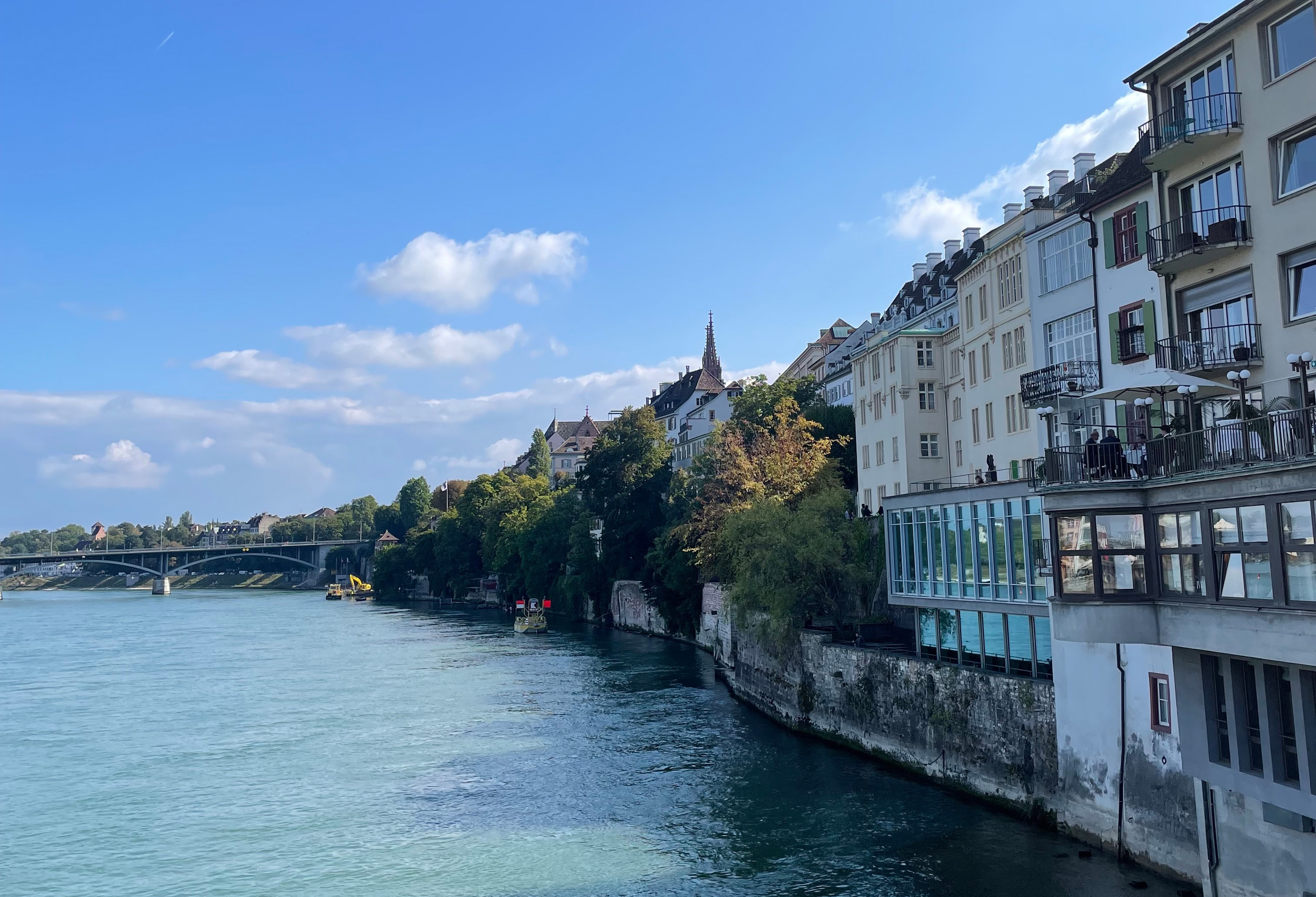
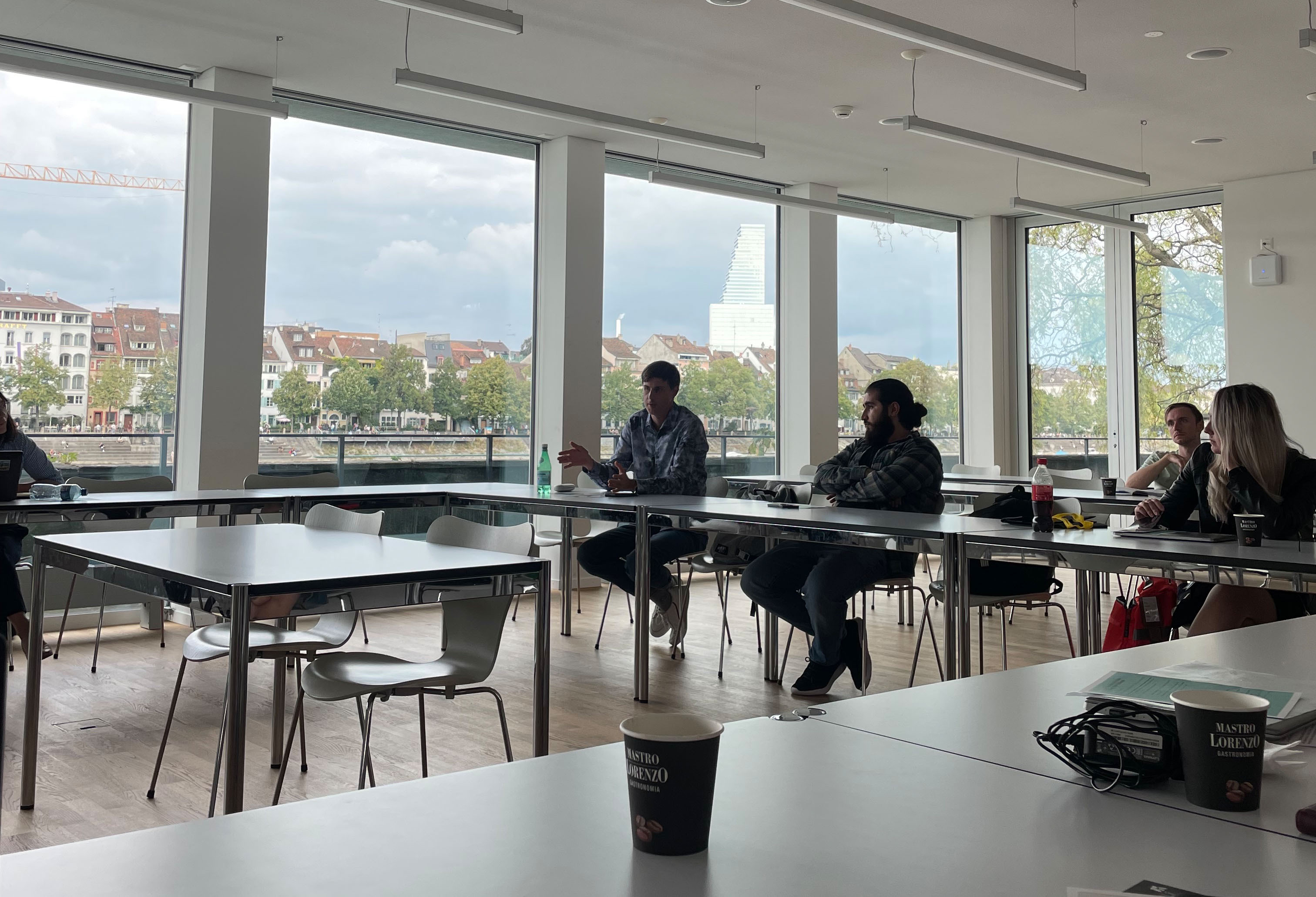
The first panel, chaired by OLENA PALKO (Basel) focused on the history of Islam and Muslim communities on the territory of today’s Ukraine. MYKHAYLO YAKUBOVYCH (Freiburg) drew an image of an intellectual history of the Crimean Khanate, demonstrating that traces of writings by scholars, who were born, studied, or lived on the peninsula, can be found in a wide geographic area, ranging from Indonesia in the east, to Tunis in the south and the Polish- Lithuanian Commonwealth in the north-west.
This was followed by ELMAZ ASANOVA (Kyiv/Cambridge), whose presentation focused on the impact the policies of Russification had on indigenous communities in Crimea during the 18th-19th century. With the help of reports by foreign travellers and references to poems by famous Russian poets, Aleksandr Puškin in particular, Elmaz reconstructed the disregard for and destruction of culture and religion of Crimean Tatars by tsarist officials following Russia’s occupation of the peninsula in 1773.
The third presentation by MARTIN-OLEKSANDER KISLY (Kyiv) focused on the 1944 deportation of the Crimean Tatars and their attempts to return to the peninsular after the war. Martin-Oleksander demonstrated how such first-hand narratives have shaped the image of Crimea for a generation of Crimean Tatars born outside of it and how this myth of homeland contributed to the drive to return, despite being deliberately hindered by Soviet officials. The destruction of this rich and vibrant Muslim history in Ukraine, and specifically in Crimea, by tsarist and later Soviet officials was a unifying thread for these three talks, which covered a timespan of more than five hundred years between the 15th and 20th centuries. Nonetheless, this destruction of Ukraine's Islamic heritage did not stop at the end of the 20th century.
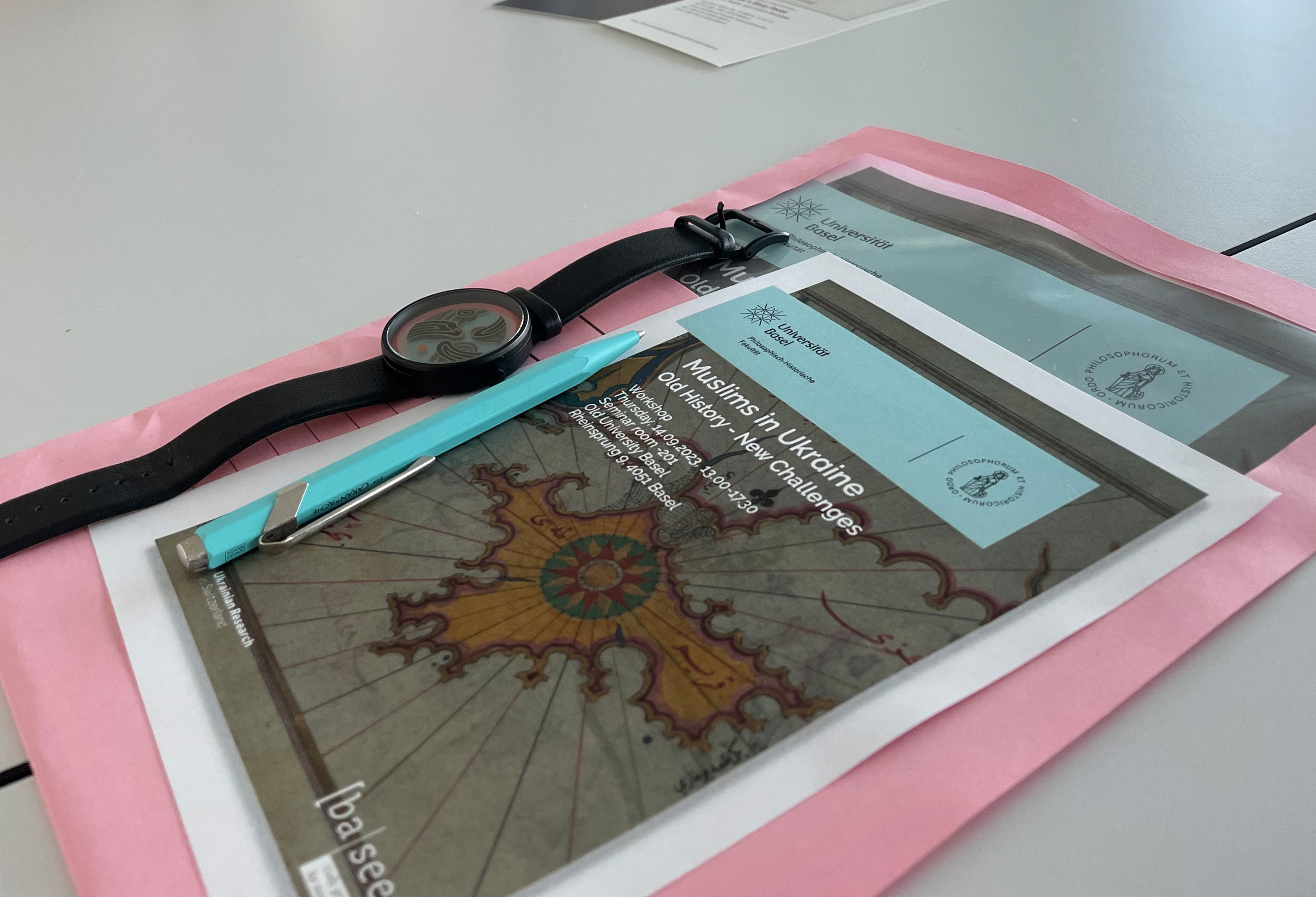
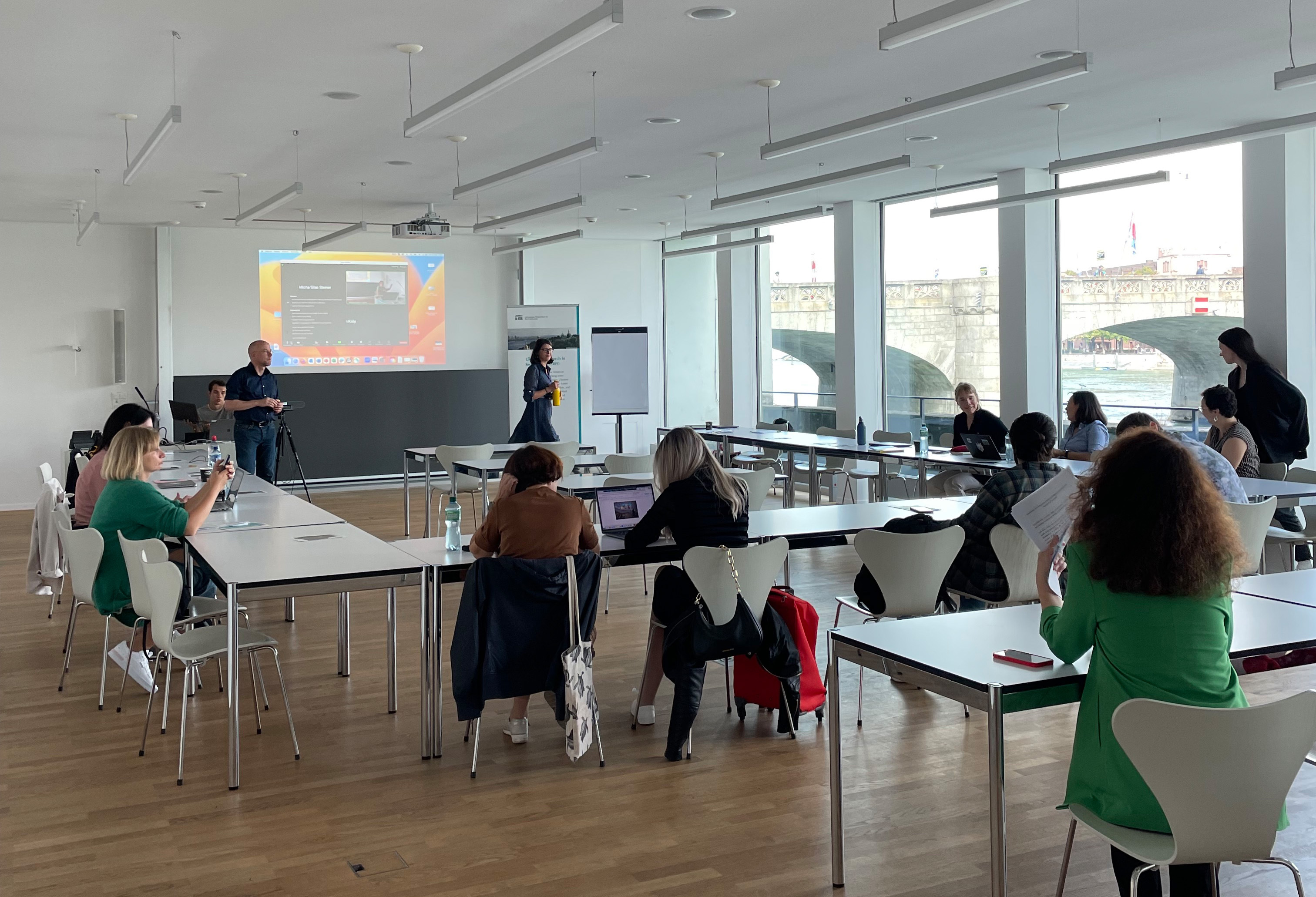
The second panel, chaired by BOTAKOZ KASSYMBEKOVA (Basel) drew our attention to Muslim communities in Ukraine since 1991. OLENA SOBOLIEVA (Kyiv/Basel) opened the second panel with a presentation of the Crimean Tatars' case for repatriation and the reclaiming of the peninsula after their return. Olena outlined two strategies of land reclamation, the first being ideological and focusing on the ‘reconstruction of the lost paradise’, while the second concerned everyday activities, such as the simple act of settling and building houses on the Crimean Peninsula, whose landscape had been severely changed in the postwar era.

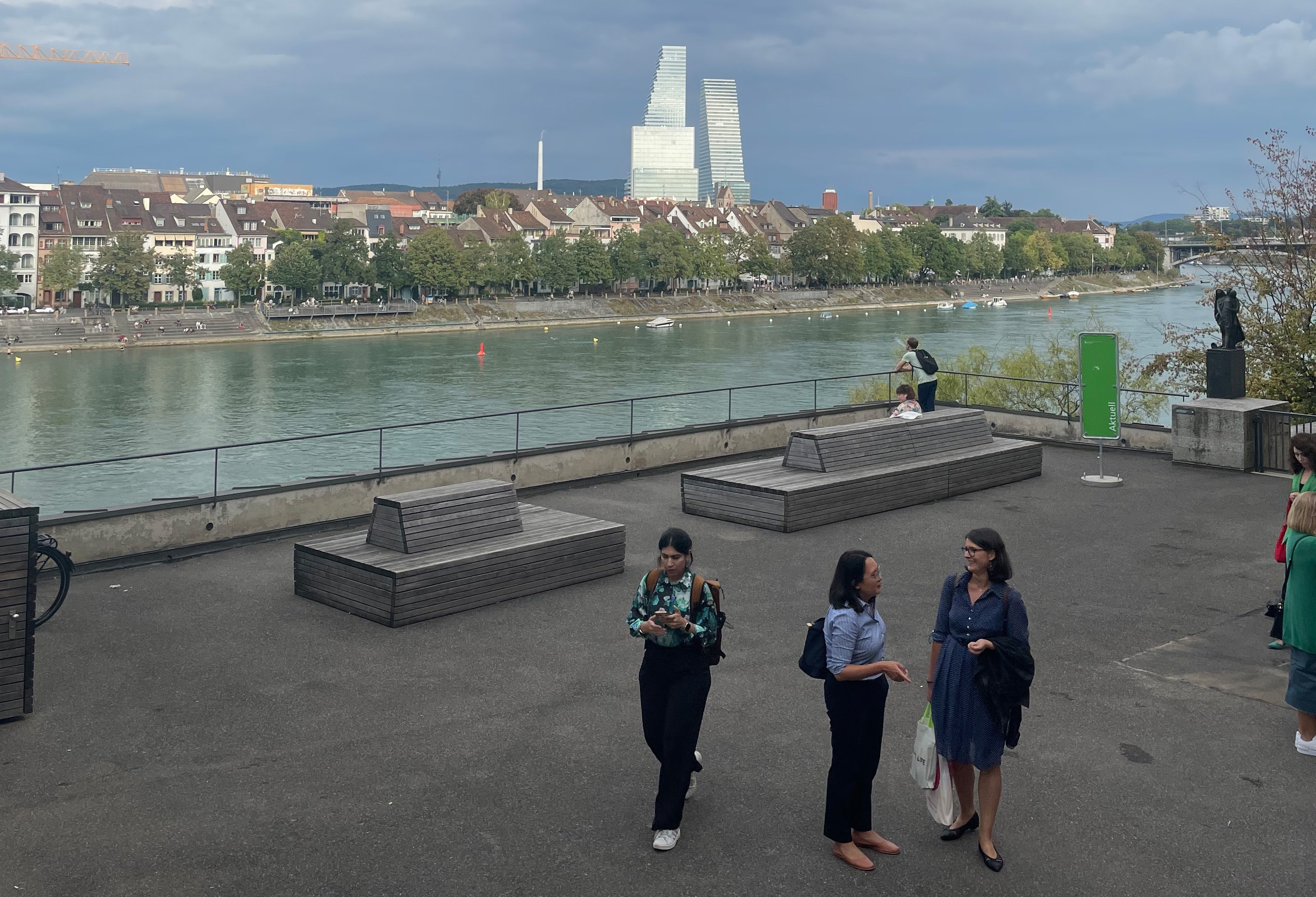
The presentation of ELMIRA MURATOVA (Simferopol/Aarhus) turned our attention towards survival strategies among Tatar communities in Crimea, following its occupation by the Russian Federation in 2014. Elmira proposed three different strategies employed by the Crimean Tatars who had decided to stay in the Crimea. These include ‘open resistance’, which inevitably ends in judicial persecution by the Russian state; the use of ‘culture as a new battlefield’ e.g., striking a balance between cooperation and subversion through cultural production; and ‘compelled collaboration’ whereby financial and political benefits are used to entice religious institutions into cooperation.
The final presentation was given by AKIF TAHIIEV (Kharkiv), who discussed theimpact of the Russian war of aggression on Shīʿa Muslims in Ukraine and especially their perceptions of the marjaʿ al-taqlīd system. Although none of the seven Shīʿa mosques in Ukraine have been directly hit by Russian missiles, Iran’s support for Russia has had a defining impact on how many Shīʿites relate to Ayatollah Ali Khamenei as their legal and religious authority.
Also interesting
Im Herbstsemester 2023 fand die dritte URIS Ringvorlesung zur Ukraine statt. Die Aufzeichnungen der Vorträge sind nun online!
Didn't have time to attend our URIS workshop on documentary comics and graphic novels created during wartime in Ukraine? We have summarized the day for you.
Vom 2. bis 15. November zeigt das Stadtkino Basel im Rahmen der "Kyiv Critics Week" ein Auswahl an ukrainischen Filmen